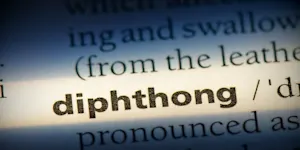What Makes This Word Tick
"Conflate" is one of those words that sneaks into conversations when things are getting a bit muddled. It means to combine two or more things into one, often leading to a mix-up. Think of it as similar to when you mix different types of paints and end up with a color you didn't quite expect.
If Conflate Were a Person…
Conflate would be that friend who likes to organize group events but ends up combining two plans into one confusing mess. They're well-meaning and try to make things easier but sometimes just end up creating more chaos than clarity.
How This Word Has Changed Over Time
Though its roots go back to Latin, "conflate" has mostly stayed true to its original meaning. However, in the digital age, it's often used to point out inaccuracies when discussions on social media blur lines between separate issues.
Old Sayings and Proverbs That Use Conflate
While "conflate" itself isn't found in ancient proverbs, the idea is there. Take "Don't put all your eggs in one basket." It's a warning against combining too much at once — a classic conflation concern.
Surprising Facts About Conflate
The word "conflate" shares a surprising connection with the idea of inflation. Both come from the Latin "conflare," which means to blow together, often suggesting the idea of swelling or expanding by mixing elements.
Out and About With This Word
You'll often find "conflate" used in academic papers, media critiques, and political debates — anywhere precise language is essential. It's a favorite among those who love to point out when arguments start to merge for the wrong reasons.
Pop Culture Moments Where Conflate Was Used
While "conflate" doesn’t often star in blockbuster movies, you'll find it lurking in scripts where characters dive into debates, especially in political dramas. Think "The West Wing" or "The Newsroom," where every word counts.
The Word in Literature
"Conflate" finds itself most at home in non-fiction and analytical literature. Authors love to use it when they're dissecting arguments or theories. George Orwell might not have used the word, but the idea would fit seamlessly into "1984" with its theme of manipulated truths.
Moments in History with Conflate
Picture the debates during the drafting of pivotal documents like the U.S. Constitution. "Conflate" could describe the merging of ideas and compromises as different interests came together — sometimes muddled, sometimes masterfully.
This Word Around the World
In linguistically diverse circles, "conflate" might translate differently, reflecting unique cultural concerns about mixing or combining ideas. For instance, Japanese might use a phrase meaning "to mix unknowingly" — highlighting cultural nuances about clarity and separation.
Where Does It Come From?
With Latin roots, "conflate" comes from "conflatus," the past participle of "conflare," meaning to blow together. This origin splendidly encapsulates the concept of blending elements into one entity, intentionally or unintentionally.
How People Misuse This Word
People sometimes use "conflate" when they mean "confuse" or even "combine." It's a subtle difference, but conflating implies an unintended merging of ideas, not just a simple confusion.
Words It’s Often Confused With
Confuse: This implies making errors in understanding, while conflate specifically merges different ideas into one.
Combine: While combining is deliberate, conflating often happens unwittingly.
Equate: To equate is to consider two things as equal, whereas conflating creates a new, often muddled, concept.
Additional Synonyms and Antonyms
Synonyms for "conflate" include merge, blend, and amalgamate. Antonyms include differentiate, separate, and distinguish.
Want to Try It Out in a Sentence?
"Many people conflate happiness with success, assuming that the two must always go hand in hand."
















